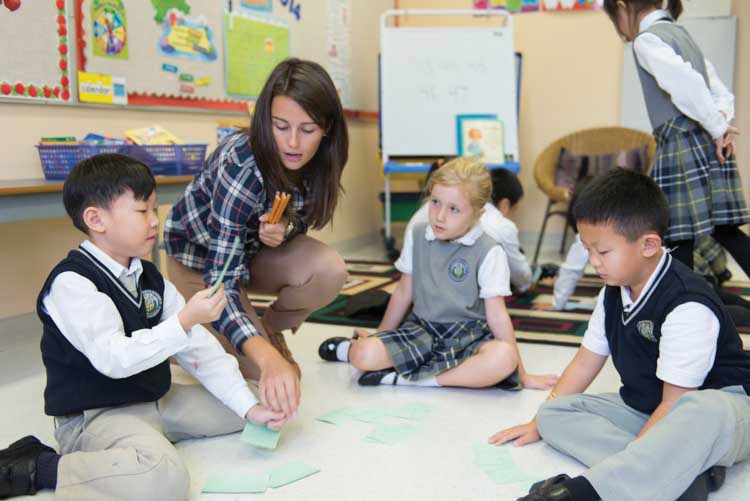Student life at Pythagoras Academy is taking shape as the school enters the second half of the second year of its existence.
Founded in 2013, Pythagoras bills itself as one of Richmond’s first non-religious, co-educational independent school certified by the Ministry of Education.
The school’s goal is to focus children on Renaissance-based modern knowledge by incorporating fine arts into most facets of the students’ educational goals.
“The founding members felt this was very important; Learning about the Renaissance and the arts and its scientists was being lost in society,” noted Pythagoras’ inaugural principal Clive Austin, who himself helped found West Point Grey Academy.
Smaller class sizes and more one-on-one learning for students who need the extra attention distinguishes Pythagoras. The school also has a strong commitment to openness and tolerance of all cultures and beliefs, said Austin, an educator for 47 years.
“I think we have to be tolerant of all religions and focus on inclusiveness. We have children of many religions and as time goes on, they will learn about other religions in their social studies,” said Austin.
The openness to all religions and cultures has meant a diverse student body has been formed at Pythagoras, Austin added.
Pythagoras has partnered with several fine arts organizations such as Goh Ballet, the Arts Umbrella and the Vancouver School of Music, all of which offer on-site extra-curricular classes after school for an additional fee.
“At this point in time our focus is to build the written and language skills,” said Austin.
The school has a robust visual arts program with art classes and dance classes becoming a particular hit with students.
Austin said teachers are directed to intertwine different subjects, such as math and arts, in order to challenge students to think outside the box.
It is noted in the school’s curriculum guidelines that “students participate in a rich, diverse, logically progressive curriculum, which guides ways of thinking, knowing and doing.”
The learning that happens at Pythagoras is very hands-on and focuses on developing inter-personal skills.
Part of that means students should have a strong English background, said Austin.
“We have to concentrate on ensuring the level of spoken and written English is very much predominant in our school,” he said, while noting there are challenges in Richmond, given its large immigrant community.
Any child who needs help, be it with a language or math or social studies, can get one-on-one help at the school’s skills centre, a program designed by Austin himself.
Only in its second year, Pythagoras is also accruing digital equipment and hoping to build a new gymnasium for an eventual expansion into high school. So far, the school only offers classes for kindergarten to Grade 7 but will open it’s first Grade 8 class in September.



